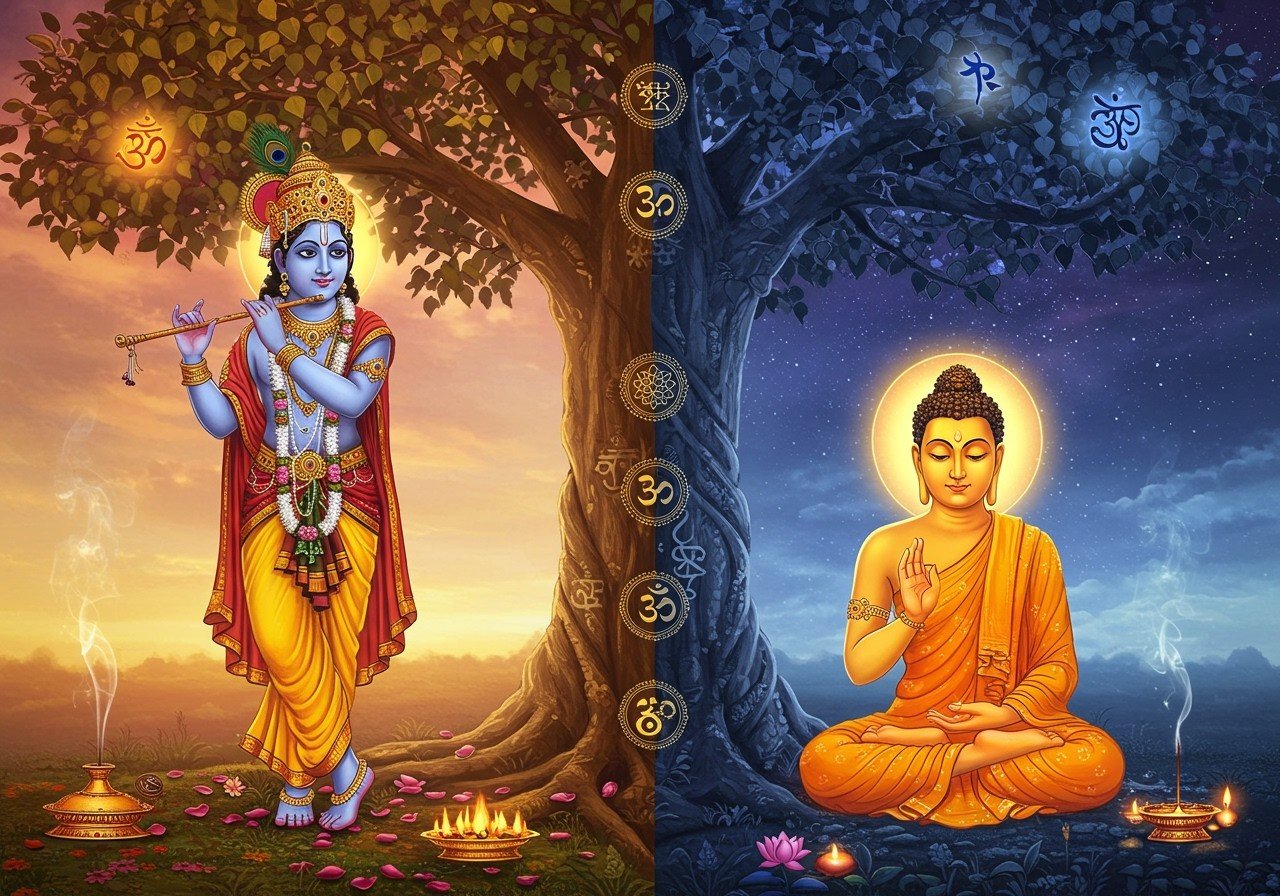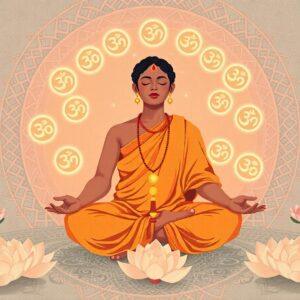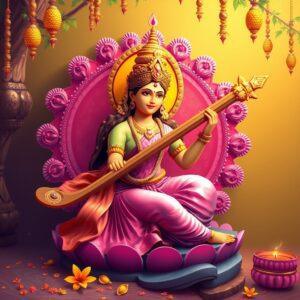
Buddhism and Hinduism, two of the world’s most ancient and influential religions, both originated in the Indian subcontinent. They share interconnected histories and have profoundly shaped the spiritual, philosophical, and cultural landscape of the region and beyond. This article delves into their shared origins, divergent philosophies, and key similarities and differences.
Historical Intertwining
Hinduism’s origins trace back to the Indus Valley Civilization around 2000 BCE, evolving through Vedic traditions over millennia. Buddhism emerged later in the 6th century BCE with Siddhartha Gautama, the Buddha, born into a Hindu family. Historical events, such as the Maurya Empire’s embrace of Buddhism and the Gupta Empire’s championing of Hindu culture, significantly influenced the trajectory of both religions.
Philosophical Divergences
While sharing some common ground, the core philosophies of Buddhism and Hinduism diverge significantly. Hinduism revolves around the concept of Brahman, the ultimate reality, and Atman, the individual soul, emphasizing dharma (duty) and karma (action and consequence). The goal is moksha, liberation from the cycle of reincarnation. Buddhism, conversely, focuses on the Four Noble Truths and the Eightfold Path, aiming to alleviate suffering (dukkha) through ethical conduct, mental discipline, and wisdom. A key distinction is the concept of self: Hinduism believes in an eternal soul, while Buddhism emphasizes anatta, the absence of a permanent self.
Rituals and Practices: Similarities and Differences
Both religions incorporate rituals and practices, yet their forms and focuses differ. Hindu rituals include puja (worship), often involving offerings to deities, meditation, and rites of passage like samskaras. Festivals such as Diwali and Holi hold great significance. Buddhist practices center on meditation (vipassana and samatha), chanting, and adherence to moral precepts. Vesak, a major Buddhist festival, commemorates the Buddha’s birth, enlightenment, and death.
Deities and Symbolism: Distinct Approaches
Hinduism boasts a rich pantheon of gods and goddesses, including Brahma, Vishnu, Shiva, Lakshmi, and Durga, each with symbolic representations and associated stories. Buddhism primarily focuses on the historical Buddha and Bodhisattvas, enlightened beings who postpone Nirvana to help others. Symbols like the lotus flower, dharma wheel, and stupa are prominent in Buddhist art and architecture.
Spread and Influence: From India to the World
Hinduism’s influence is predominantly concentrated in the Indian subcontinent, shaping regional cultures and traditions. Buddhism, through missionary work and trade, spread extensively across Asia, impacting the art, architecture, literature, and philosophy of countries like Sri Lanka, China, Japan, Korea, and Southeast Asia.
Modern Relevance
In contemporary times, both religions continue to evolve and adapt. Hindu practices and festivals experience renewed interest, and Hindu-inspired yoga and meditation have gained global popularity. Buddhist mindfulness practices have also gained widespread recognition, with Buddhist communities flourishing worldwide. Both religions navigate modern challenges such as secularism, globalization, and interfaith dialogue.
Buddhism and Hinduism FAQs
Are Buddhism and Hinduism related? Yes, Buddhism emerged from within Hinduism in ancient India, sharing historical and cultural roots. However, they have developed into distinct religions with different core beliefs and practices.
What’s the main difference between Buddhism and Hinduism regarding the self? Hinduism believes in an eternal self (Atman), while Buddhism denies the existence of a permanent self (Anatta).
Do both religions practice meditation? Yes, meditation is central to both, although the specific techniques and objectives may vary.
Poojn.in: Supporting Your Spiritual Journey
Poojn.in, India’s leading online store for spiritual and cultural goods, offers a wide selection of products to support both Hindu and Buddhist practices. Explore our collection to enhance your spiritual journey:
- Malas and Prayer Beads: Discover a variety of Rudraksha malas for Hindu practices and prayer beads for Buddhist traditions. We offer high-quality materials and craftsmanship to enhance your meditation and prayer experience. Find the perfect mala or prayer beads to deepen your connection to your chosen path.
- Incense and Dhoop: Create a sacred atmosphere with our selection of natural incense sticks and dhoop, crafted from traditional ingredients. Perfect for both Hindu puja and Buddhist meditation, our incense offerings enhance focus and create a serene environment for your spiritual practices. Choose from a variety of fragrances to suit your preferences.
- Meditation Supplies: Enhance your meditation practice with our comfortable meditation mats and cushions. We offer a range of styles and materials to support your posture and provide a comfortable seat for extended meditation sessions. Create a dedicated space for your practice with our high-quality meditation accessories.
Visit Poojn.in today to explore our complete collection and discover authentic products that honor both Hindu and Buddhist traditions.
Conclusion
Buddhism and Hinduism, while sharing a historical connection, have evolved into distinct spiritual paths, each offering unique insights into the human condition. Understanding their shared heritage and divergent philosophies allows us to appreciate the rich tapestry of spiritual traditions that have emerged from ancient India. By exploring these traditions, we deepen our understanding of ourselves and the world around us.


